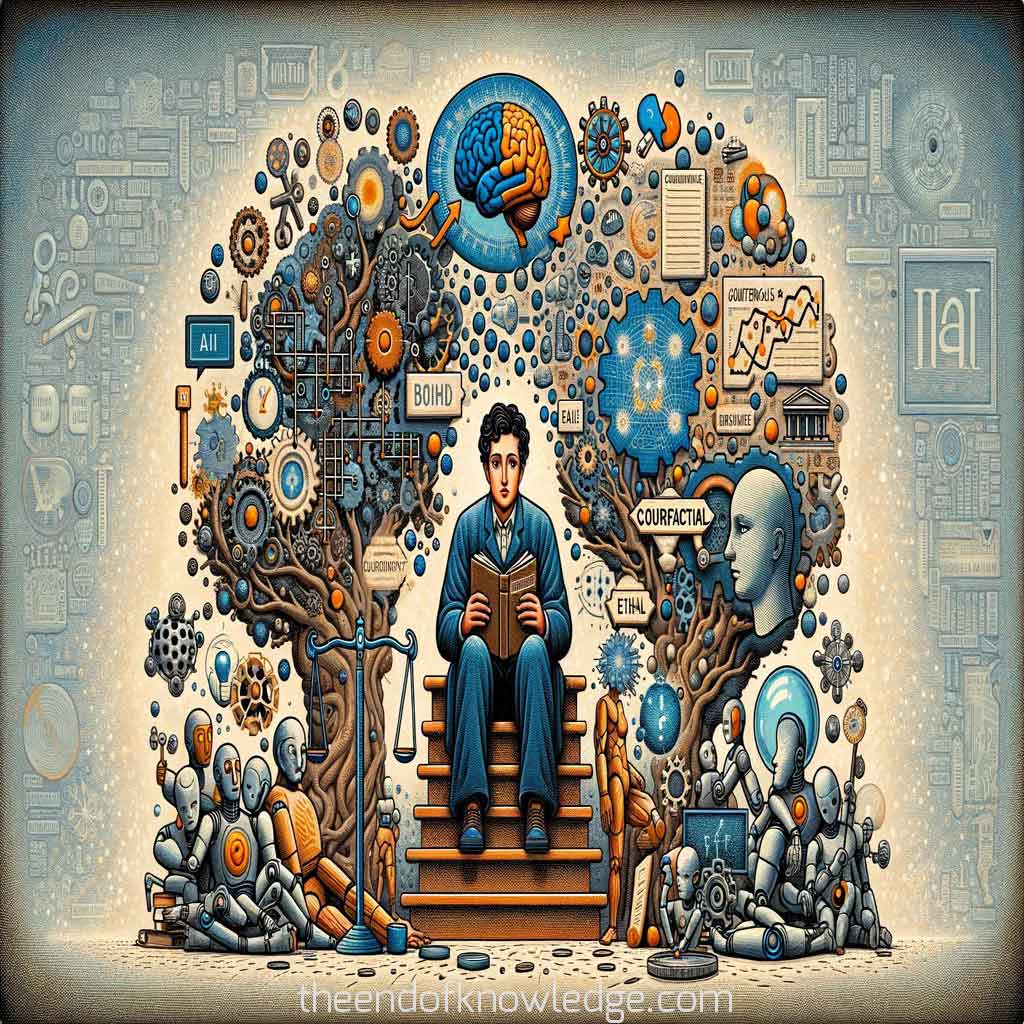 >
>
Concept Graph (using Gemini Ultra + Claude3):
Custom ChatGPT resume of the OpenAI Whisper transcription:
1.- Judea Pearl's seminal contributions to AI are highlighted: probabilistic approaches, Bayesian networks, and causality. This work is foundational for AI and science in general.
2.- Causality is missing in current AI, hindering "true intelligence." Pearl's work is presented as key to progress.
3.- Pearl recounts early fascination with math and physics, including discovering the connection between algebra and geometry.
4.- Pearl's diverse academic background is outlined (math, engineering, physics), showing his wide-ranging interests.
5.- He discusses his view of determinism/stochasticity in the universe, touching on Heisenberg's uncertainty principle and implications for causality.
6.- Pearl criticizes AI's lack of causal understanding � machines need to grasp cause/effect, not just patterns.
7.- Accurate knowledge representation is vital in AI; causal reasoning is needed for meaningful predictions and interventions.
8.- Counterfactual reasoning allows understanding actions *not* taken, which is key for decision-making and ethics.
9.- Building ethical AI requires causal reasoning for machine empathy. This is a complex challenge in aligning AI and human values.
10.- Pearl uses examples (coin flips) to show difficulty in separating correlation and causation, highlighting the need for careful experimental design.
11.- This is especially difficult in fields like psychology. Observational studies have limits, rigorous experiments are needed to establish causation.
12.- Pearl shares an anecdote about Daniel's experiment from the Bible � showing the ancient human quest to understand causation.
13.- Mathematical tools for causal reasoning were developed in the 20th century, bridging the gap between old philosophical questions and modern rigor.
14.- Pearl criticizes machine learning as being mostly about conditional probability, which fundamentally limits its ability to achieve artificial general intelligence.
15.- He discusses Bayesian networks (their potential and limits in expressing causality), and the need to move beyond them toward causal networks.
16.- Qualitative understanding must precede quantitative � human expertise is needed at the start of model building to ground AI in reality.
17.- The "do calculus" is introduced � Pearl's mathematical framework for formalizing intervention and causal inference.
18.- Counterfactual reasoning is another key part of causal reasoning, allowing exploration of "what if" scenarios and their outcomes.
19.- Pearl again reflects on AI ethics, and the role of causality in building machines that can empathize and reason morally.
20.- Causality is transformative in understanding human behavior beyond just AI, impacting psychology, economics, and more.
21.- Experimental design is key � interventions reveal how one factor influences another, validating theories and guiding practical application.
22-. Pearl's "do calculus" formalizes causal inference even when direct experimentation is difficult, expanding our ability to predict and influence.
23.- Counterfactual reasoning lets us learn from actions not taken, which is core to moral decision-making.
24.- Ethical AI needs causal reasoning to understand consequences of actions and align with human values.
25.- Current machine learning's focus on pattern-finding without causality is a major limitation, needing to be addressed for true intelligence.
26.- Causal reasoning's applications include revolutionizing epidemiology and social science � better predictions, interventions, and insights.
27.- Pearl is optimistic but cautious about AI's future � causal and ethical innovation are needed for positive, values-aligned impact.
28.- Interdisciplinary research is crucial to advance AI further, drawing on insights from other fields to model complex causal relationships.
29.- Pearl reflects on his legacy, hoping his work on causality will continue to impact future generations, focused on curiosity and understanding fundamental principles.
Interview byLex Fridman| Custom GPT and Knowledge Vault built byDavid Vivancos 2024